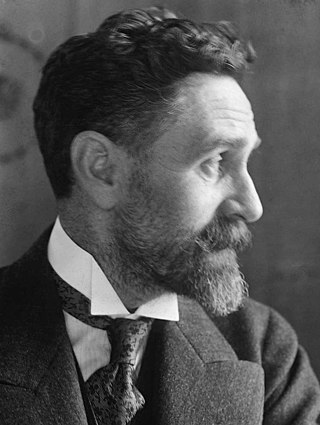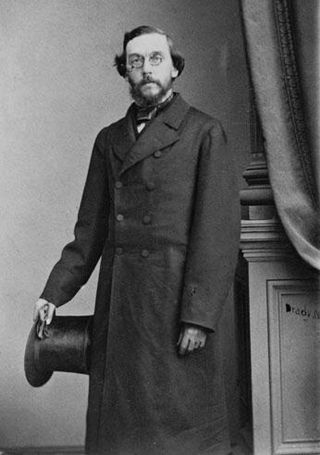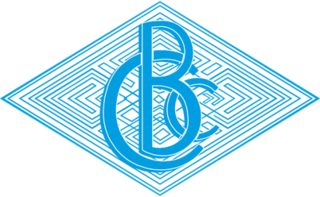
Leopold II was the second King of the Belgians from 1865 to 1909, and the founder and sole owner of the Congo Free State from 1885 to 1908.

Albert I was King of the Belgians from 23 December 1909 until his death in 1934.

Baudouin, Dutch name Boudewijn, was King of the Belgians from 17 July 1951 until his death in 1993. He was the last Belgian king to be sovereign of the Congo.

Belgium is a constitutional, hereditary and popular monarchy. The monarch is titled King of the Belgians and serves as the country's head of state and commander-in-chief of the Belgian Armed Forces. There have been seven Belgian monarchs since independence in 1830.

The Congo Free State, also known as the Independent State of the Congo, was a large state and absolute monarchy in Central Africa from 1885 to 1908. It was privately owned by King Leopold II, the constitutional monarch of the Kingdom of Belgium. In legal terms, the two separate nations were in a "personal union". The Congo Free State was not a part of, nor did it belong to Belgium. Leopold was able to seize the region by convincing other European states at the Berlin Conference on Africa that he was involved in humanitarian and philanthropic work and would not tax trade. Via the International Association of the Congo, he was able to lay claim to most of the Congo Basin. On 29 May 1885, after the closure of the Berlin Conference, the king announced that he planned to name his possessions "the Congo Free State", an appellation which was not yet used at the Berlin Conference and which officially replaced "International Association of the Congo" on 1 August 1885. The Free State was privately controlled by Leopold from Brussels, he never went there.

King Leopold's Ghost: A Story of Greed, Terror and Heroism in Colonial Africa (1998) is a best-selling popular history book by Adam Hochschild that explores the exploitation of the Congo Free State by King Leopold II of Belgium between 1885 and 1908, as well as the large-scale atrocities committed during that period. The book, also a general biography of the private life of Leopold, succeeded in increasing public awareness of these crimes in recent decades.
Colonization of the Congo Basin refers to the European colonization of the Congo Basin of tropical Africa. It was the last part of the continent to be colonized. By the end of the 19th century, the Basin had been carved up by European colonial powers, into the Congo Free State, the French Congo and the Portuguese Congo.
The Congo Reform Association (CRA) was a political and humanitarian activist group that sought to promote reform of the Congo Free State, a private territory in Central Africa under the absolute sovereignty of King Leopold II. Active from 1904 to 1913, the association formed in opposition to the institutionalised practices of Congo Free State's 'rubber policy', which encouraged the need to minimise expenditure and maximise profit with no political constraints – fostering a system of coercion and terror unparalleled in contemporary colonial Africa. The group carried out a global publicity campaign across the Western world, using a range of strategies including displays of atrocity photographs; public seminars; mass rallies; celebrity endorsements; and extensive press coverage to lobby the Great Powers into pressuring reform in the Congo. The association partially achieved its aims in 1908 with the Belgian government's annexation of the Congo Free State and continued to promote reform until disbanding in 1913.

The Casement Report was a 1904 document written at the behest of the British Government by Roger Casement (1864–1916)—a diplomat and Irish independence fighter—detailing abuses in the Congo Free State which was under the private ownership of King Leopold II of Belgium. This report was instrumental in Leopold finally relinquishing his private holdings in Africa. Leopold had held ownership of the Congolese state since 1885, granted to him by the Berlin Conference, in which he exploited its natural resources for his own private wealth.

Henry Shelton Sanford was a wealthy American diplomat and businessman from Connecticut who served as United States Minister to Belgium from 1861 to 1869. He is also known for founding the city of Sanford, Florida and for successfully lobbying the United States into recognizing King Leopold II's claim to the Congo region in central Africa, the area that would become Leopold's privately controlled Congo Free State.

The Central Bank of the Congo is the central bank of the Democratic Republic of the Congo. The bank's main offices are on Boulevard Colonel Tshatshi in La Gombe in Kinshasa.

The International Association of the Congo, also known as the International Congo Society, was an association founded on 17 November 1879 by Leopold II of Belgium to further his interests in the Congo. It replaced the Belgian Committee for Studies of the Upper Congo which was part of the International African Association front organisation created for the exploitation of the Congo. The goals of the International Congo Society was to establish control of the Congo Basin and to exploit its economic resources. The Berlin Conference recognised the society as sovereign over the territories it controlled and on August 1, 1885, i.e. four and half months after the closure of the Berlin Conference, King Leopold's Vice-Administrator General in the Congo, announced that the society and the territories it occupied were henceforth called "the Congo Free State".

The United States and Belgium maintain a friendly bilateral relationship. Continuing to celebrate cooperative U.S. and Belgian relations, 2007 marked the 175th anniversary of the nations' relationship.
Columbus Sims (1829–1869) was an American lawyer and Colonel of California Volunteers in the American Civil War.

Blanche Zélia Joséphine Delacroix, better known as Caroline Lacroix, was the most prominent and notorious of Leopold II of Belgium's mistresses.

The Congo Free State propaganda war was a worldwide media propaganda campaign waged by both King Leopold II of Belgium and the critics of the Congo Free State and its atrocities. Leopold was very astute in using the media to support his virtual private control of the Congo. British campaigner Edmund Dene Morel successfully campaigned against Leopold and focused public attention on the violence of Leopold's rule. Morel used newspaper accounts, pamphlets, and books to publish evidence from reports, eye-witness testimony, and pictures from missionaries and others involved directly in the Congo. As Morel gained high-profile supporters, the publicity generated by his campaign eventually forced Leopold to relinquish control of the Congo to the Belgian government.
Henry Wellington Wack was an American attorney and writer noted for being an apologist for Leopold II's regime of the Congo Free State.
Charles Henry Stokes was an Irish missionary turned trader who lived much of his life in Africa and was the centre of the Stokes Affair between the United Kingdom and Congo Free State.

In the period from 1885 to 1908, many atrocities were perpetrated in the Congo Free State which, at the time, was a state under the absolute rule of King Leopold II of the Belgians. These atrocities were particularly associated with the labour policies used to collect natural rubber for export. Together with epidemic disease, famine, and a falling birth rate caused by these disruptions, the atrocities contributed to a sharp decline in the Congolese population. The magnitude of the population fall over the period is disputed, with modern estimates ranging from 1.5 million to 13 million.
Relations between the Congo Free State and the United States began after recognition between the two states in 1885 when the Congo Free State was established. After Belgium under Leopold II annexed the Congo Free State in 1908, later becoming Belgian Congo, relations ceased between the two nations.













